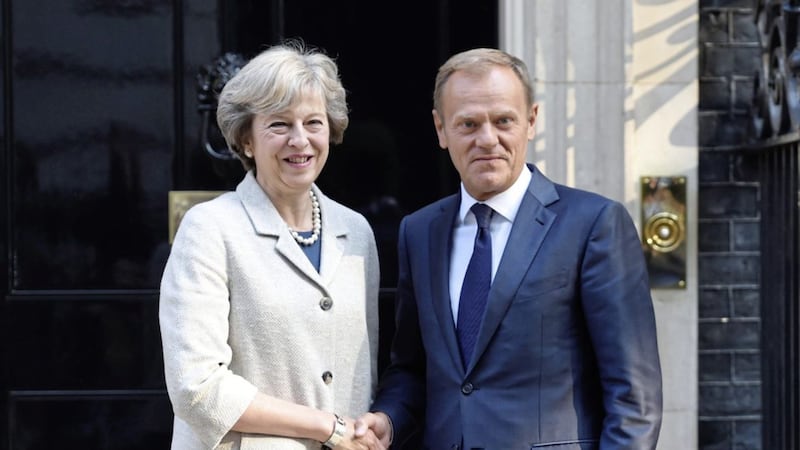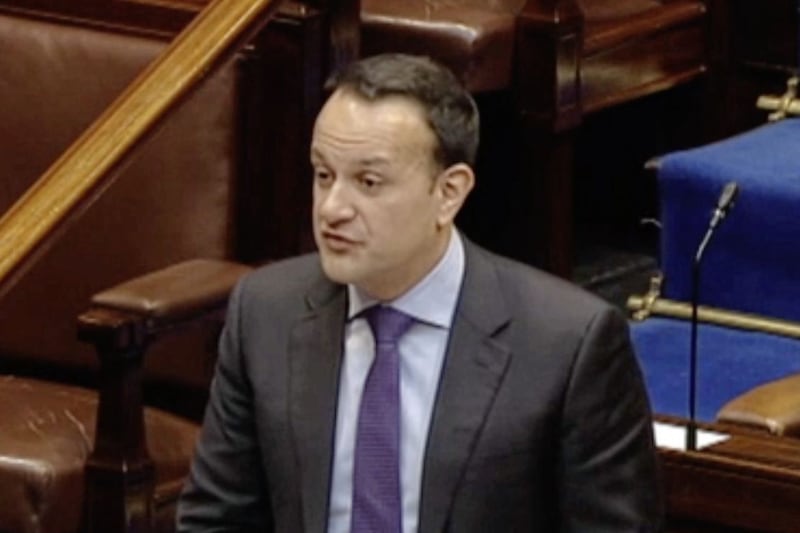The EU has said it will seek "flexible and creative solutions" to avoid the creation of a hard border between Northern Ireland and the Republic post-Brexit.
In the response to the British Prime Minister Theresa May triggering Article 50 - the mechanism for leaving the European Union on Wednesday, European Council President Donald Tusk has published draft guidelines on the exit process.
Within the nine-page document it states that any solution to the issue of a hard border needs to "respect the integrity of the EU legal order."
Both the UK and Irish governments have repeatedly expressed their wish to avoid a return to customs posts at the border, with protests held in recent months against such a move.
The guidelines from the European Council also state the EU should "recognise existing bilateral agreements and arrangements" between the UK and Ireland which are compatible with EU law.
This is thought to be reference to the Common Travel Area, which allows for the free movement of British and Irish citizens on the island of Ireland and the rest of the UK. There are fears a hard Brexit could jeopardise the bilateral UK-Ireland agreement in place since 1922.
Mr Tusk has indicated that negotiations on future trade relations between the UK and EU could begin as early as this autumn, but will only take place once "sufficient progress" has been achieved in talks on the arrangements for Britain's withdrawal, widely seen as a reference to agreement on a "divorce bill" of an estimated £50 billion set to be presented to the UK.
The guidelines insist a free trade agreement (FTA) can formally be concluded only after the UK has ceased its membership, but add it will be possible to negotiate "an overall understanding on the framework for the future relationship" prior to Brexit to allow for a swift agreement after withdrawal.
Any FTA should be "balanced, ambitious and wide-ranging", but cannot involve "participation in the single market or parts thereof".
In an indication Brussels will seek to secure British compliance with many of its rules and regulations as part of the price for a deal, the document warns an FTA must "ensure a level playing field in terms of competition and state aid and must encompass safeguards against unfair competitive advantages through ... fiscal, social and environmental dumping".
The guidelines leave open the possibility of "transitional arrangements" to cover any period between the expected date of Brexit on March 29 2019 and the conclusion of an FTA, adding such arrangements must be "clearly defined, limited in time and subject to effective enforcement mechanisms".
In response a British government spokesman said:
"These are draft guidelines and we look forward to beginning negotiations once they have been formally agreed by the 27 member states.
"It is clear both sides wish to approach these talks constructively and, as the Prime Minister said this week, wish to ensure a deep and special partnership between the UK and the European Union."
Foreign secretary Boris Johnson said the announcement showed "a lot of goodwill, a lot of willingness to achieve what the Prime Minister has said she wants to achieve, which is an orderly transition and then a deep and special partnership between a strong EU and a strong UK".
Labour leader Jeremy Corbyn was also positive in his assertion. "It's welcome that Donald Tusk has softened the EU's opposition to talks on trade taking place before the terms of withdrawal are agreed," he said.
Liberal Democrat leader Tim Farron said however that Theresa May had been "taken to Tusk", as the guidelines showed "the strength of the EU in these negotiations and the carelessness of the UK Government in isolating themselves from our European allies".








